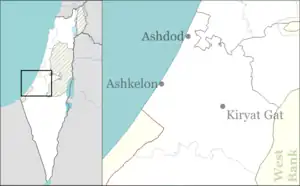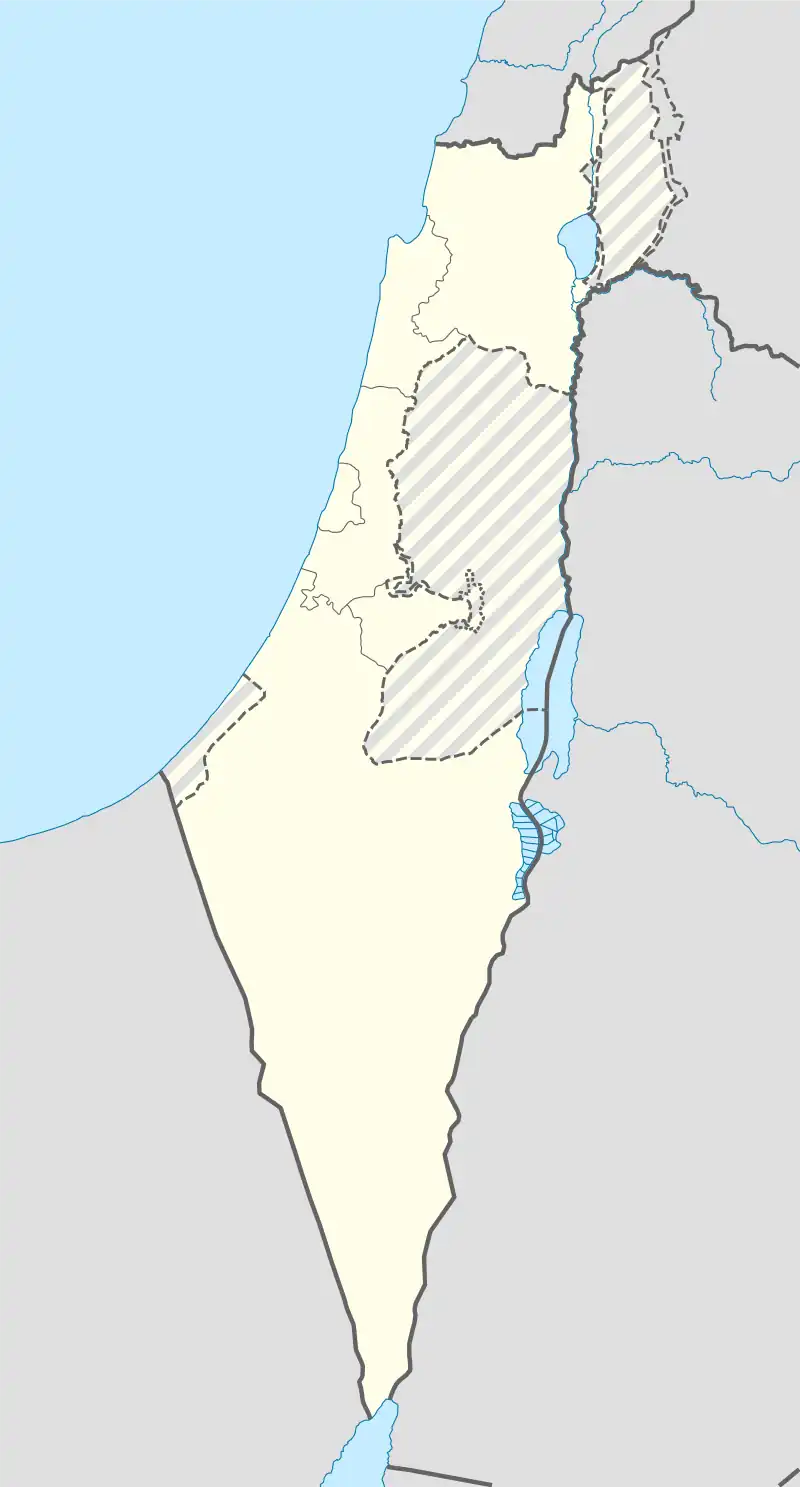Shahar
שַׁחַר شاحر | |
|---|---|
| Hebrew transcription(s) | |
| • unofficial | Shachar |
 | |
| Etymology: Dawn | |
 Shahar  Shahar | |
| Coordinates: 31°37′7″N 34°43′27″E / 31.61861°N 34.72417°E | |
| Country | |
| District | Southern |
| Council | Lakhish |
| Affiliation | Moshavim Movement |
| Founded | 1955 |
| Founded by | North African Jewish refugees and Indian-Jewish immigrants |
| Population (2021)[1] | 880 |
Shahar (Hebrew: שַׁחַר, lit. Dawn) is a moshav in south-central Israel. Located about three kilometres west of Kiryat Gat and one kilometre east of Nir Hen, it falls under the jurisdiction of Lakhish Regional Council. In 2021 it had a population of 880.[1]
History
The moshav was founded in 1955 as part of the program to populate the area with Jewish refugees from North Africa and Jewish immigrants from India on the lands of the depopulated Palestinian village of al-Faluja.[2] Its name symbolizes the dawn of Zionist settlement in Hevel Lakhish.
The main industry that they developed was growing flowers for export, an enterprise which, despite the harsh desert climate, grew and prospered. One of Shahar's leading businessmen, Eliahu Bezalel, won the Kaplan Prize in 1994 and then the Pravasi Bharatiya Divas (an award for Non-Resident Indians), in recognition of these achievements.[3]
References
- 1 2 "Regional Statistics". Israel Central Bureau of Statistics. Retrieved 22 February 2023.
- ↑ All that remains : the Palestinian villages occupied and depopulated by Israel in 1948. Khalidi, Walid. Washington, D.C.: Institute for Palestine Studies. 1992. ISBN 0-88728-224-5. OCLC 25632612.
{{cite book}}: CS1 maint: others (link) - ↑ "Roses in the Desert", a chapter within The Last Jews of Kerala by Edna Fernanades, Porobelo Books, 2008